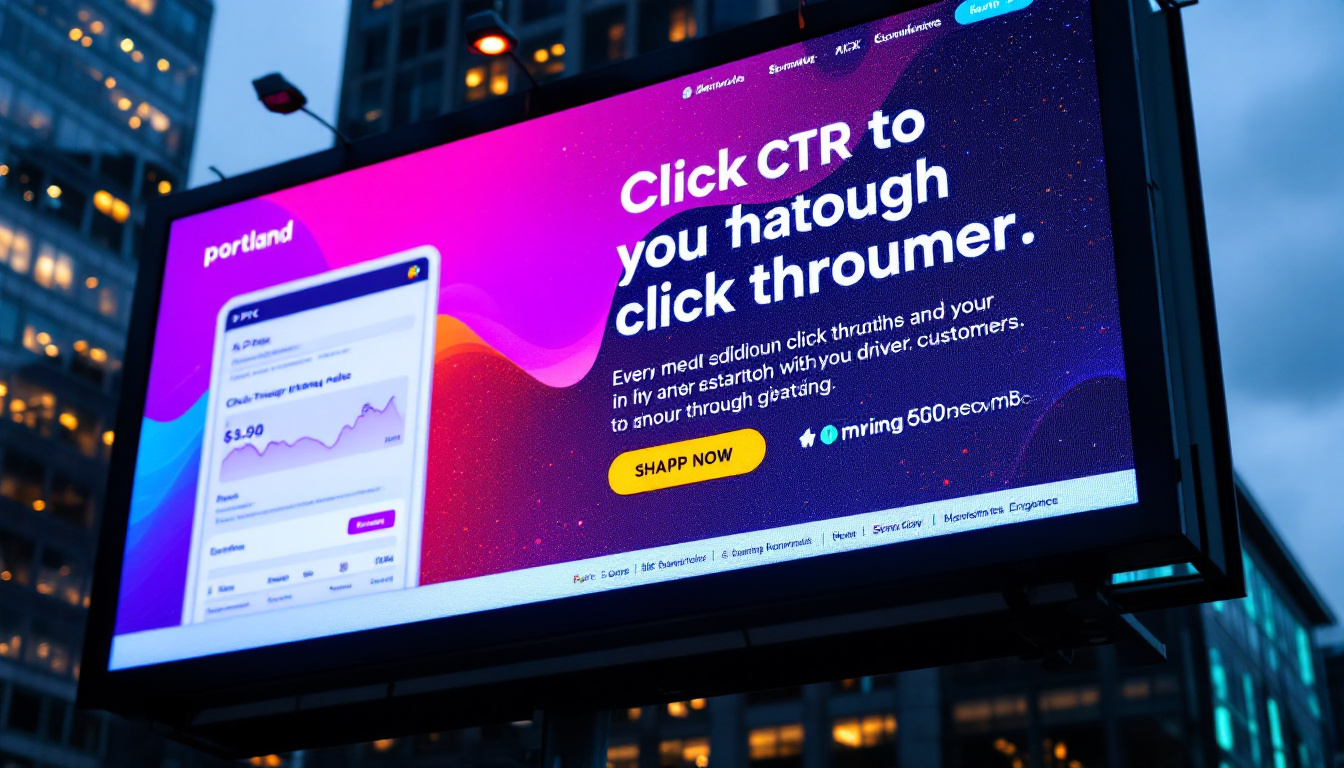How to Measure Success in PPC for Portland, OR Businesses

Pay-per-click (PPC) advertising has become an essential component for businesses in Portland, Oregon, aiming to gain visibility and drive conversions. However, measuring the success of PPC efforts can be quite challenging. This article will guide you through effective strategies and key metrics necessary for assessing and optimizing your PPC campaigns.
Key metrics to track in your PPC campaigns
When measuring the success of your PPC campaigns, there are several key performance indicators (KPIs) that you should monitor closely. These metrics provide insight into how effectively your advertisements are performing and whether you're achieving your business goals.

Firstly, one of the most crucial metrics to watch is the Cost Per Acquisition (CPA). This figure represents how much you’re spending to acquire a new customer through your PPC efforts. A lower CPA indicates a more efficient campaign. Secondly, you should focus on your conversion rate, which measures the percentage of visitors who take a desired action after clicking your ad. A higher conversion rate suggests that your ads and landing pages are effectively driving engagement.
Furthermore, consider tracking your Quality Score, which Google uses to assess the relevance of your ads, keywords, and landing pages. A higher Quality Score can lead to lower costs and better ad placements. Lastly, monitoring your return on investment (ROI) is critical to determine the overall success and profitability of your PPC campaigns.
In addition to these primary metrics, it's also beneficial to keep an eye on your click-through rate (CTR). This metric indicates the percentage of users who click on your ad after seeing it. A high CTR often reflects the effectiveness of your ad copy and targeting strategy, suggesting that your messaging resonates well with your audience. Moreover, analyzing the average position of your ads can provide insights into your visibility on search engine results pages. Ads that consistently appear in higher positions are more likely to attract clicks and conversions.
Another important metric to consider is the impression share, which reveals the percentage of times your ads were shown compared to the total number of times they could have been displayed. A low impression share may indicate that your budget is too limited or that your bids are not competitive enough. By understanding and optimizing these additional metrics, you can refine your PPC strategy further, ensuring that your campaigns not only reach a wider audience but also convert effectively, maximizing your overall marketing efforts.
How to interpret conversion rates and ROI
Understanding conversion rates is key to interpreting the effectiveness of your PPC campaigns. The conversion rate is calculated by dividing the total number of conversions by the total number of visitors, then multiplying by 100 to get a percentage. A poor conversion rate might indicate issues with your ad targeting or the quality of your landing page. For instance, if your ads are attracting the wrong audience, even a high number of clicks may not translate into conversions, leading to wasted ad spend and missed opportunities.
To improve your conversion rate, consider implementing A/B testing for your landing pages. By comparing different versions of a page, you can identify elements that drive higher conversions, such as call-to-action buttons, headlines, and designs. It's advisable to make one change at a time to effectively measure what aspects contribute most to your success. Additionally, analyzing user behavior through heat maps and session recordings can provide insights into how visitors interact with your page, helping you pinpoint areas for improvement that may not be immediately obvious.
ROI, on the other hand, is measured by taking your net profit from the PPC campaign, dividing it by the total cost of the campaign, and multiplying by 100 for a percentage. An ROI greater than 100% means you are making a profit on your PPC ads. Aim for a healthy ROI to ensure that your marketing efforts are worthwhile and scale them accordingly. It's also important to consider the long-term value of customers acquired through PPC campaigns, as repeat business can significantly enhance your overall ROI. Tracking customer lifetime value (CLV) alongside ROI can provide a more comprehensive picture of the effectiveness of your advertising strategies, allowing for more informed decision-making in future campaigns.
The importance of click-through rates (CTR)
Click-through rate (CTR) is another vital metric that helps gauge the effectiveness of your PPC campaigns. CTR is calculated by dividing the number of clicks your ad receives by the number of times your ad is shown (impressions), then multiplying by 100 to get a percentage. A high CTR indicates that your ads are relevant and appealing to your target audience.

Improving your CTR can significantly enhance your PPC success. Begin by focusing on your ad copy. Make sure it is compelling and includes a clear call to action. Additionally, utilizing ad extensions, such as sitelinks and call buttons, can help your ad stand out and increase CTR. Engaging visuals and keywords that resonate with your audience also play an important role in improving click rates.
As you refine your ads and track their performance, you should continually strive to reach a higher CTR. This not only boosts your ad's ranking on search engines but can also lead to a more efficient and cost-effective campaign.
Moreover, understanding the factors that influence CTR can provide deeper insights into your audience's behavior. For instance, conducting A/B testing on different ad variations can help you identify which elements resonate best with your target demographic. Testing different headlines, descriptions, and images can reveal preferences that may not be immediately apparent. Additionally, analyzing the timing of your ads can also impact CTR; running ads during peak hours when your audience is most active can lead to higher engagement rates.
Furthermore, it's essential to keep an eye on industry benchmarks for CTR, as these can vary significantly across different sectors. By comparing your CTR with industry averages, you can gain a better understanding of your campaign's performance relative to competitors. This analysis can inform your strategy and help you identify areas for improvement, ensuring that your PPC efforts remain competitive and effective in driving traffic to your website.
Using analytics tools to measure performance
To effectively measure and analyze your PPC performance, leveraging analytics tools is essential. Tools like Google Analytics, Google Ads, and Microsoft Advertising provide extensive data that can help you assess the impact of your campaigns.
Google Analytics can be particularly useful for tracking website behavior after visitors click on your PPC ads. You can analyze user engagement, bounce rates, and other metrics that reveal how well your site converts traffic originating from ads. Additionally, setting up goals within Google Analytics allows you to track conversions and measure how effectively your clients move through the sales funnel.
Google Ads also provides valuable insights into your campaign's performance, enabling you to monitor metrics like CTR, impression share, and Quality Score. By using these tools effectively, you can identify areas for improvement and optimize your campaigns for better results.
Moreover, integrating Google Ads with Google Analytics can enhance your data analysis capabilities. This integration allows you to see the full customer journey, from the initial ad click to the final conversion, providing a comprehensive view of user interactions. You can segment your audience based on their behavior and tailor your ads to target specific demographics or interests, thus increasing the likelihood of conversion. Additionally, the ability to create custom reports in Google Analytics means you can focus on the metrics that matter most to your business, allowing for more strategic decision-making.
Another important aspect of using analytics tools is the ability to conduct A/B testing. By experimenting with different ad copies, landing pages, or targeting strategies, you can gather data on what resonates best with your audience. This iterative approach not only helps in refining your campaigns but also fosters a deeper understanding of consumer preferences and behaviors. As you gather more data over time, you can build a robust strategy that adapts to changing market conditions and maximizes your return on investment.
Tips for continuous improvement in PPC campaigns
Continuous improvement is key to remaining competitive in PPC advertising. Implementing systematic changes and optimizations can significantly enhance your ad performance. Begin by regularly reviewing your metrics and identifying trends over time to discover what’s working and what isn’t.
Another strategy is to refine your keyword targeting. Conduct regular keyword audits to identify high-performing keywords and eliminate underperformers. Additionally, consider employing negative keywords to filter out unwanted traffic, thus improving your overall campaign efficiency.
Regularly testing various ad formats and messages can also lead to better outcomes. Experiment with responsive search ads, display ads, and video ads to see which formats yield the best results for your business. Keeping up with industry trends and algorithm updates is essential, as PPC advertising is an ever-evolving field that requires marketers to stay informed and agile.
In conclusion, measuring success in PPC for Portland, OR businesses goes beyond simply tracking clicks and impressions. By focusing on key metrics, interpreting conversion rates and ROI, paying attention to CTR, using analytics tools for in-depth performance insights, and continuously improving, your PPC campaigns can drive significant growth and success.

As a Google Ads expert, I bring proven expertise in optimizing advertising campaigns to maximize ROI.
I specialize in sharing advanced strategies and targeted tips to refine Google Ads campaign management.
Committed to staying ahead of the latest trends and algorithms, I ensure that my clients receive cutting-edge solutions.
My passion for digital marketing and my ability to interpret data for strategic insights enable me to offer high-level consulting that aims to exceed expectations.




























